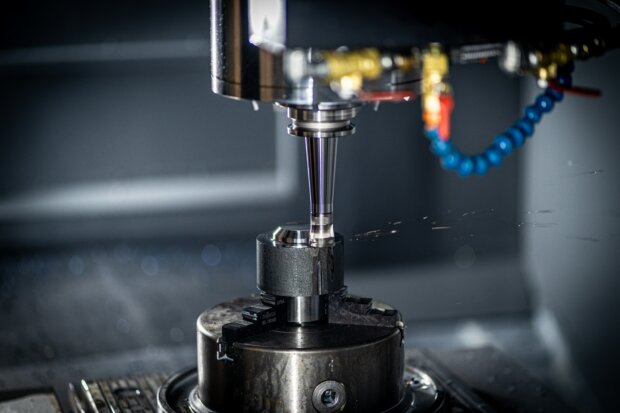Computer numerical control (CNC) machining is a form of manufacturing which uses software to control machine tools such as lathes, mills and 3D printers.
When I started out in the industry over 30 years ago, it was a relatively new, untested technology which was primarily used by the injection mould tool industry.
At the time, it was still in its early stages, meaning the majority of projects conducted using CNC machining simply involved old, punched paper feed or direct control input.
As the years have progressed, CNC and automated manufacturing have become somewhat commonplace across the industry and almost a requirement of modern-day manufacturing, reducing costs and significantly improving efficiency and quality.
My career – as a specialist in CNC – has echoed this. Since starting out in 1990, I’ve gone on to work with all kinds of workshop equipment, from manual mills to high end 5 axis mill/turns, 3D printers, laser cutters and CAD/CAM software.
This has seen me work on projects utilising CNC to produce everything from injection mould tools to tyre moulds, precision components, motorsport and F1 parts, aerospace components, film and TV props and even kitchen cooker hoods, you name it.
And it’s not just the large companies who are benefiting from embracing CNC. Here at the SAM Project, we’ve invested thousands into state-of-the-art CNC-enabled machines and software to help the region’s SME manufacturers test out the technology and understand its many benefits.
This has seen us work on numerous projects that have involved using my knowledge of manufacturing and CNC machining, with the biggest impacts being reduced timescales, improved accuracy, and repeatability where batch work is involved.
One of the key benefits is the ability for the equipment to complete a task without supervision. This allows the operator to complete other tasks during the manufacturing cycle which – at a time when manufacturers are facing a critical skills shortage – is a huge boon for those that have embraced CNC machining.
CNC machining is also able to produce parts with incredible precision, as the machine is controlled by a computer program that follows a set of pinpoint instructions. This means the finished parts will be more accurate and consistent than those produced using traditional machining methods.
As well as increased output and productivity, CNC also provides greater design flexibility by allowing manufacturers to produce a wide variety of complex parts and designs, as the computer program can be easily modified to produce different variations of parts. This allows manufacturers to be more flexible and responsive to changing customer needs and market requirements as demand ebbs and flows.
Contrary to popular belief, automated technologies such as CNC haven’t de-skilled the industry, either. Whereas much was made of the rise of the robots ‘replacing humans’, it has simply changed the skills required of workers, moving good machinists from hovering over machines to retraining them to program the machines, utilising their knowledge in a whole new way while adding extra skills to businesses.
As for the future of CNC machining, I feel that the relationship between CNC and 3D printing will continue to evolve, with machines capable of performing both techniques simultaneously and becoming more commonplace across the industry.
Over the coming years it is also likely that it will continue to evolve and become even more accessible to SMEs. New developments in technology such as machine learning and automation are likely to further increase the accuracy and efficiency of CNC machining, making it a must-have technology for any manufacturer.
Thankfully, for those interested in learning more about the manufacturing benefits of CNC machining, it has never been easier to trial the technology thanks to the market-leading equipment and support available through the SAM Project. To find out more about the support and how your business could benefit, contact the team today.
- Martin Officer, Advanced Manufacturing Technician

